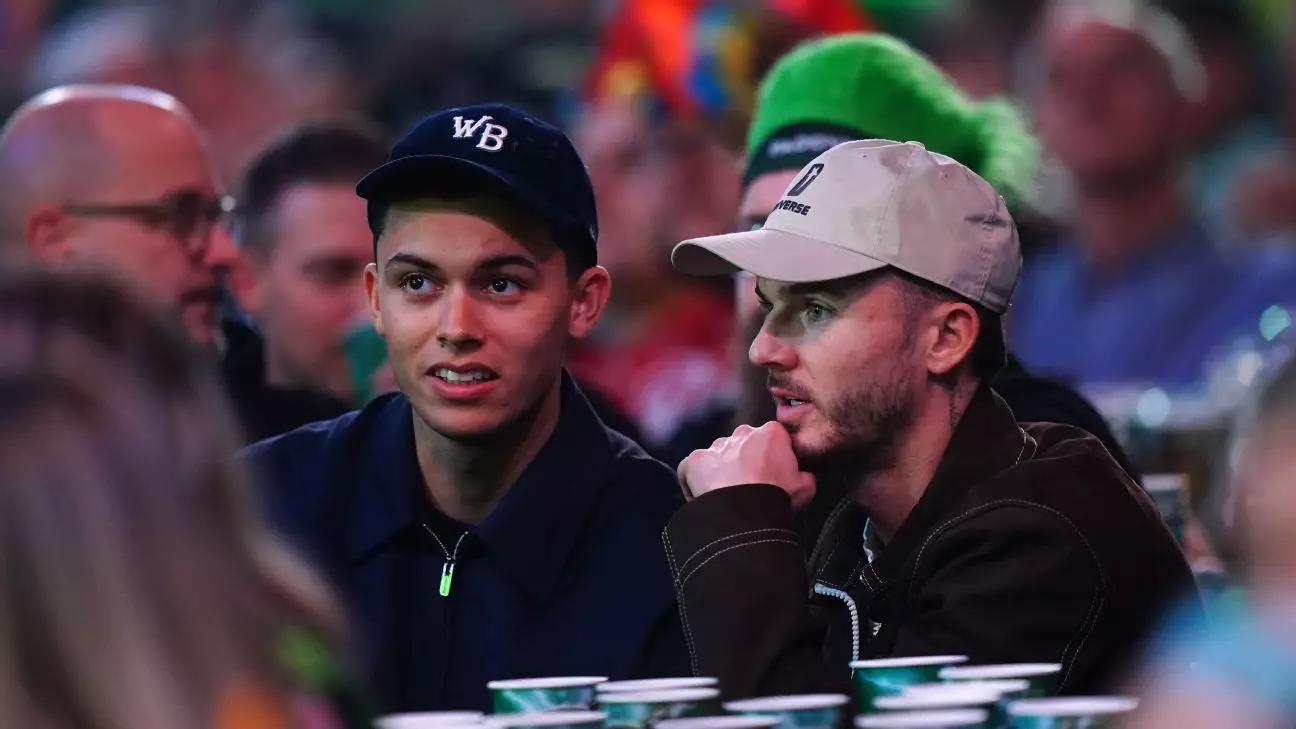In a recent match that ended in a 2-2 draw between Tottenham Hotspur and Wolverhampton Wanderers, the absence of star midfielder James Maddison was notable. Due to an illness, Maddison was unable to start but later came off the bench in the second half. This situation surged into the limelight when he was spotted enjoying the PDC World Darts Championship shortly after the game. Such incidents raise questions about the commitment and attitudes of modern athletes towards their professions and personal lives.
Tottenham manager Ange Postecoglou’s response to Maddison’s attendance at the darts event reflects a broader understanding of player welfare and life balance. Postecoglou expressed no concerns about Maddison’s choice to engage in leisure activities, emphasizing the difference between being ill and merely being unable to perform optimally. His comments promote a progressive view that advocates for players’ well-being beyond the pitch, suggesting that mental and emotional rejuvenation can enhance performance.
Maddison’s situation serves as a reminder that athletes are human beings with lives that extend beyond the playing field. Acknowledging this complexity, Postecoglou reassures fans that a player’s health does not solely hinge on athletic participation. The key lies in maintaining a healthy balance, and for Maddison, it appears attending the darts match did not conflict with his responsibilities.
The Bigger Picture for Tottenham
Despite the draw against Wolves and a disappointing league standing of 11th place, the context surrounding Maddison’s health highlights deeper challenges for Tottenham this season. The team has struggled with injuries and consistency, resulting in their first annual performance below seventh place since the 2008-09 season. This downturn prompts discussions on the strategic adjustments necessary to revitalize the squad and climb back up the rankings.
Engaging in leisure activities can often serve as a mechanism for athletes to cope with the pressures of professional sports. Postecoglou reinforcing the point that Maddison’s attendance at the darts was non-problematic can indicate a potential method for fostering resilience within the squad. It can allow players to recharge mentally, thereby improving their focus and performance in matches.
Postecoglou expressed confidence in Maddison’s abilities, highlighting the midfielder’s goal contributions this season. However, he also acknowledged the importance of managing players’ workloads to ensure longevity and effectiveness throughout the grueling season. The blend of rest and active engagement in life outside training and match days appears crucial for maintaining an athlete’s sharpness.
Ultimately, the narrative surrounding Maddison’s attendance at the darts reflects a shift in how both fans and management perceive player conduct outside of sport. The priority should lie not just in performance metrics but also in nurturing a wholesome life that can contribute directly to an athlete’s on-field success. As Tottenham navigates the challenges of the current season, focusing on a balanced approach for players may prove pivotal in reinventing their standing in the Premier League.
